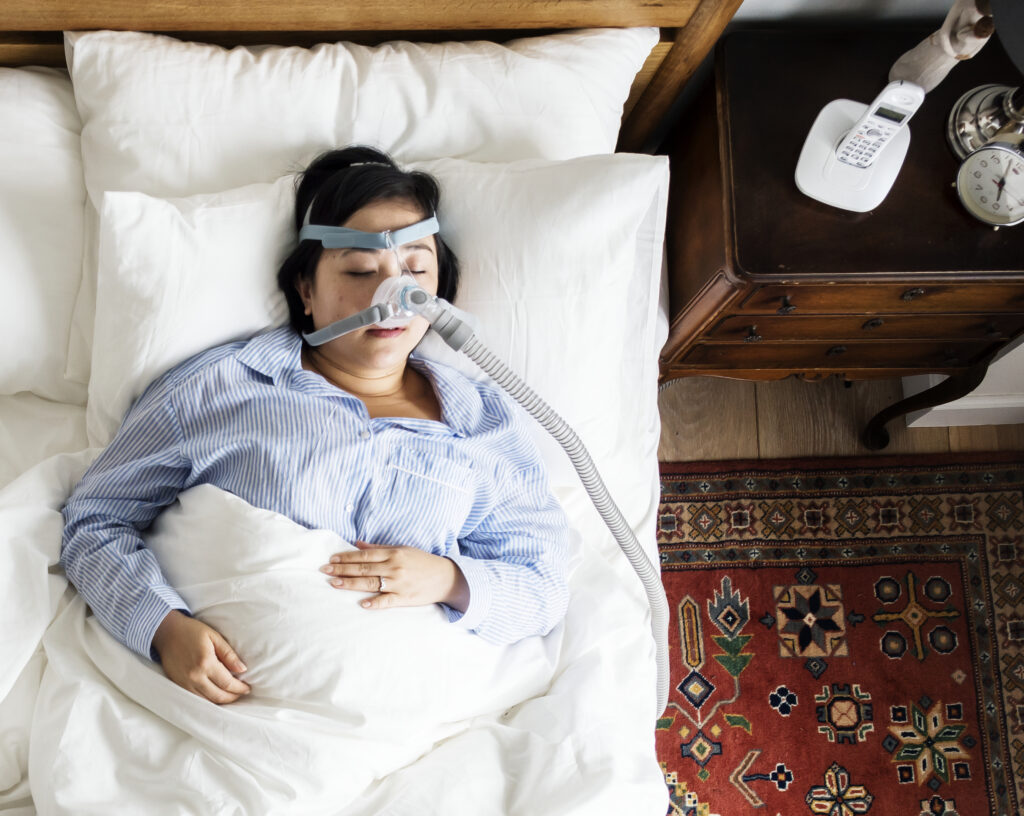Eli Lilly’s obesity drug Zepbound (tirzepatide) has become the first approved medication for obstructive sleep apnea (OSA).
At the end of December, the US Food and Drug Administration (FDA) approved Zepbound for the treatment of moderate to severe OSA in adults with obesity, for use in combination with a reduced-calorie diet and increased physical activity.
The approval marks the second for the blockbuster glucagon-like peptide-1 (GLP-1) drug, which was first approved in 2023 for the treatment of obesity or overweight.
It plays rival to Novo Nordisk’s weight loss drug Wegovy (semaglutide). Novo’s semaglutide and Lilly’s tirzepatide were first approved as treatments for type 2 diabetes, marketed as Ozempic and Mounjaro, respectively. While semaglutide is a GLP-1 agonist, tirzepatide is a dual receptor agonist as it targets both the GLP-1 and glucose-dependent insulinotropic polypeptide (GIP) receptors.
Zepbound is thought to have positive impacts on OSA due to its weight loss effects, as patients who lose weight have less obstructed sleep.
Zepbound offers an alternative to existing therapies, such as continuous positive airway pressure (CPAP) machines, which are invasive and often difficult for patients to tolerate.
Zepbound Versus Wegovy: Head-to-Head Trial Reveals Which Has the Weight Loss Edge
OSA is a chronic sleep-related breathing disorder characterized by repeated interruptions in breathing during sleep due to a complete or partial collapse of the upper airway. These interruptions lead to pauses in breathing, known as apnea, or shallow breathing episodes (hypopnea), often accompanied by reduced oxygen saturation levels. This can result in fragmented sleep, excessive daytime sleepiness, cardiovascular issues and decreased quality of life.
The most recognizable sign of OSA is snoring, but the condition — which Lilly describes as “easily overlooked” — can also cause fatigue, excessive daytime sleepiness and disrupted sleep. Current treatments primarily focus on mechanical approaches, including CPAP machines, oral appliances and, in severe cases, surgical interventions. New approaches, such as neurostimulation, are being explored for OSA.
Despite the availability of these treatments, many patients struggle with adherence to CPAP therapy, which remains the standard of care. The FDA’s approval of a medication for OSA provides a new, non-invasive option for patients who cannot tolerate or benefit fully from traditional therapies.
Zepbound activates receptors of intestinal hormones like GLP-1 and GIP to reduce appetite and food intake. By reducing body weight, the FDA says studies show that Zepbound also improves OSA.
The approval was based on results from the SURMOUNT-OSA Phase III clinical trials, which evaluated Zepbound (10 mg or 15 mg) for the treatment of moderate-to-severe OSA in adults with obesity, with and without positive airway pressure (PAP) therapy over the course of a year.
Zepbound led to 25 fewer breathing disruptions per hour compared to five with placebo, demonstrating that it was five times more effective in reducing breathing disruptions in adults not on PAP therapy.
In adults on PAP therapy, Zepbound led to 29 fewer breathing disruptions per hour compared to six with placebo.
After one year, 42 percent of adults on Zepbound and 50 percent of adults on Zepbound with PAP therapy experienced remission or mild, non-symptomatic OSA, compared to 16 percent and 14 percent who received placebo, respectively.
Zepbound alone helped patients lose an average of 45 pounds or 18 percent of their body weight. Patients who received both the Lilly drug and PAP therapy lost an average of 50 pounds, or 20 percent of their body weight, according to Lilly.
XTALKS WEBINAR: REMS Technology Innovation: Reducing Prescriber and Pharmacy Burden
Live and On-Demand: Thursday, January 23, 2025, at 1pm EST (10am PST)
Register for this free webinar to understand the evolving landscape of risk evaluation and mitigation strategy (REMS) programs and explore innovative health IT projects that are aimed at reducing the burden on prescribers and pharmacists.
“Today, many cases of OSA go undiagnosed and untreated, leaving millions at risk for serious health consequences,” said Patrik Jonsson, executive vice president, and president of Lilly Cardiometabolic Health and Lilly USA in a news release.
“Zepbound is the first medication that significantly improves moderate-to-severe OSA and aids in long-term weight loss in adults with obesity. Nearly half of clinical trial patients saw such improvements that they no longer had symptoms associated with OSA, marking a critical step forward in reducing the burden of this disease and its interconnected health challenges.”
Lilly had a great 2024 with Zepbound. In its core weight loss indication, Zepbound outperformed Wegovy by 47 percent in the head-to-head SURMOUNT-5 study.
Patients treated with Zepbound achieved an average weight loss of 20.2 percent after 72 weeks, compared to 13.7 percent for those on Wegovy.
In addition to obesity and sleep apnea, Lilly is evaluating its tirzepatide portfolio for potential use in other cardiometabolic conditions, including heart failure, prediabetes and metabolic dysfunction-associated steatohepatitis (MASH).
Results from the mid-stage SYNERGY-NASH trial show that fibrosis decreased by at least one stage without worsening of MASH in 54.9 percent of patients receiving tirzepatide 5 mg, 51.3 percent of those on 10 mg and 51 percent on 15 mg.
In comparison, only 29.7 percent of patients in the placebo group experienced similar fibrosis improvement.
Although gastrointestinal issues such as nausea, diarrhea, vomiting and indigestion are the most common side effects reported by patients using Zepbound, the drug’s approval for OSA includes a warning about the potential risk of thyroid tumors, including thyroid cancer, associated with the GIP/GLP-1 agonist.
Lilly also said to look out for possible symptoms, such as a lump or swelling in the neck, hoarseness, trouble swallowing or shortness of breath.
If you want your company to be featured on Xtalks.com, please email [email protected].












Join or login to leave a comment
JOIN LOGIN